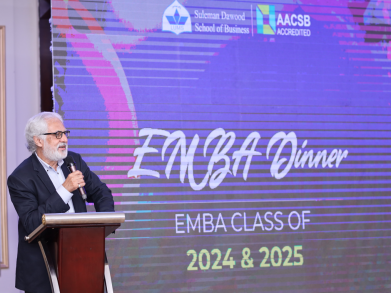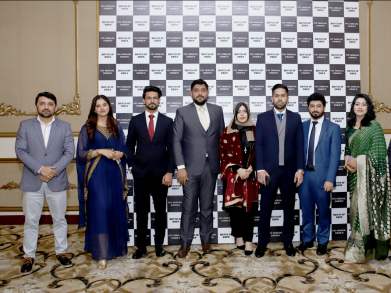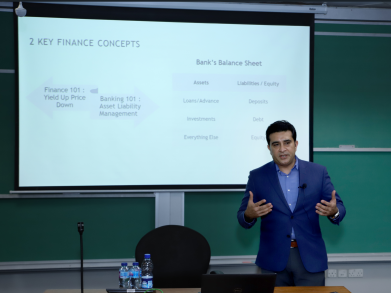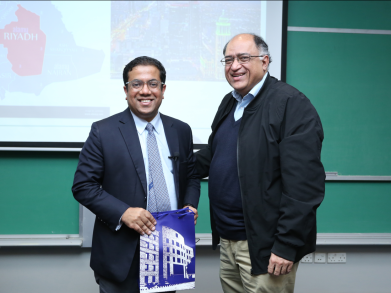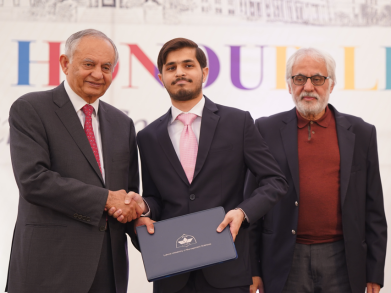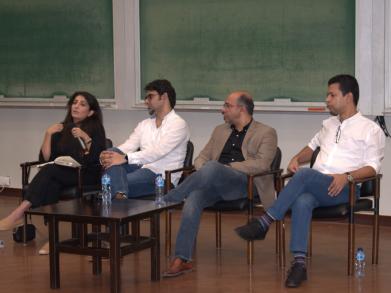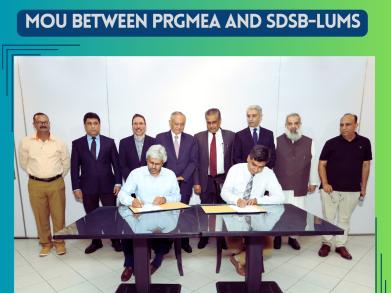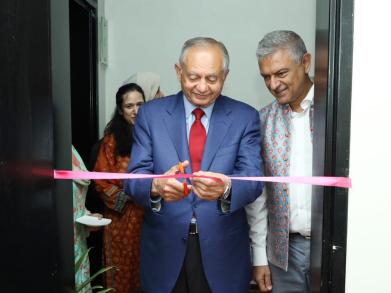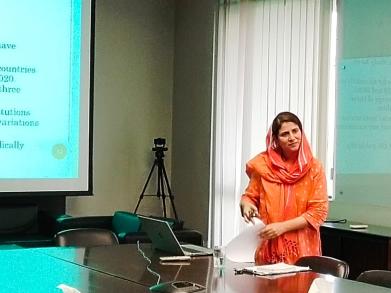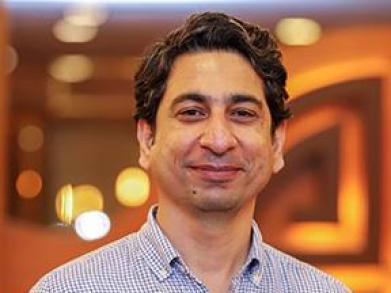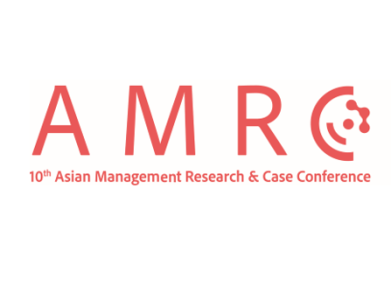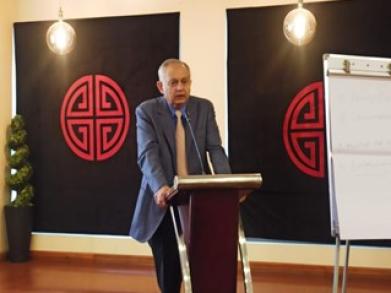LUMS Vice Chancellor Participates in Webinar on the Role of the Higher Education Commission, Pakistan
At a webinar titled, ‘Higher Education Commission Travails’, Vice Chancellor, LUMS, Dr. Arshad Ahmad, shared his ideas on the interventions necessary in Pakistan’s higher education landscape.
Organised by the Pakistan Institute of Development Economics (PIDE), the webinar focused on the present and future role of the Higher Education Commission, Pakistan (HEC) in the country and the issues surrounding it. Moderated by Dr. Nadeem Ul Haq, Vice Chancellor, PIDE, Dr. Ahmad was joined by Prof. Pervaiz Hoodbhoy, Nuclear Physicist and Activist, and Prof. Iqrar Ahmad Khan, Ex Vice Chancellor, University of Agriculture, Faisalabad.
Dr. Ahmad explained that the rules in countries that have thriving or established higher education systems are not complicated. “You have to pull back and ask whether a nation values education and what premium do they put on the value of skills, especially learning.” He explained that learning means curiosity, asking questions, and taking risks. “Whether it is knowledge, or its application or integration, you have to value learning as a society, and that will be reflected in the leadership. This one condition seems to be missing in Pakistan.”
He appealed to those in leadership positions, especially those in HEC, to critically assess the conditions, principles, and values that will drive the attitudes that are necessary for any kind of change.
The importance of basing every decision on merit and maintaining standards is imperative, Dr. Ahmad added. “Not just in appointments, promotions and allocations, and all the capacity building that we’re involved with. But rather, in everything that you do, merit should be a sort of unwritten rule. In countries where you move forward on that basis, it’s a recognised value or disposition people have.”
For Dr. Ahmad, certain values need to be inculcated for institutions like the HEC to succeed in their core mission. “The allocation of funds, to support universities, or the competitive grants or so on, has to be done by an intermediary. It can’t be the government, because it comes and goes and it has vested interests itself. No country in the world has officials sitting in search committees and in syndicates like Pakistan.”
Autonomy is another value that any kind of institution in higher education must possess, he added. Dr. Ahmad also explained the need to follow a developmental trajectory and to tier the university system, instead of forming a club where you have the really good universities on one side and the really terrible universities on the other side and all the other ones in between. “Some universities are young, some haven’t learnt the ropes and they don’t have governance systems, or systems per se. We’re talking about a very complex structure, and in this structure if you don’t get the basics right, you’re just going to be stuck in this problem.”
Prof. Iqrar Ahmad Khan agreed with Dr. Ahmad and said that once the HEC was created there should have been a periodical review and priorities should have been adjusted. “There were good intentions on paper, but political interferences and lopsided development have caused the failures we are witnessing.”
He also lamented that political factors derail any progress at HEC each time a new government comes into power. “This lack of continuity is like we want to keep reinventing the wheel. HEC should be allowed autonomy and continuity.”
Prof. Hoodbhoy explained that those at the very top of the educational ladder know very little about their subjects, barring some exceptions. This is particularly obvious in those teaching the natural sciences, as well as mathematics and computer science. “These are the subjects that build science and they are the reason that Pakistan has no chance of being in space for the next 50 years.”
For Dr. Ahmed, the way forward is a “Prime Minister who believes in education, who wants to invest in education and who is open to hearing, not just from the insiders who are feeding him misinformation. And to give autonomy to people so we can move forward.”
Dr. Ahmad’s engaging talk highlighted multiple steps and initiatives that could transform the higher education landscape in Pakistan and improve the quality of education in Pakistani universities.





